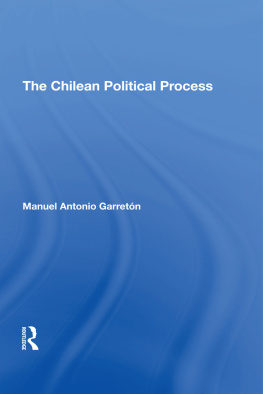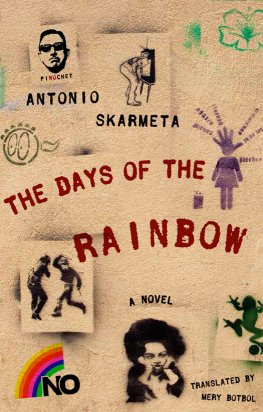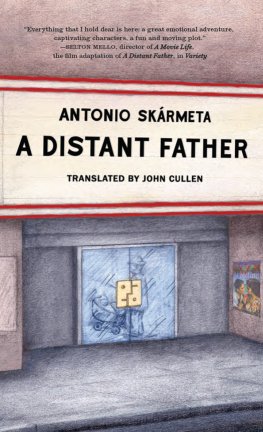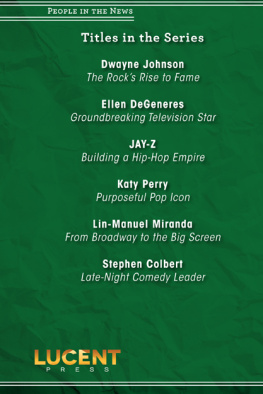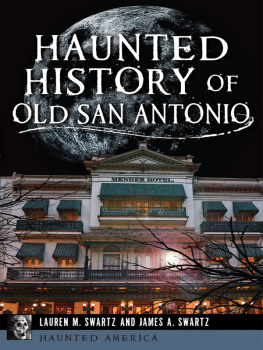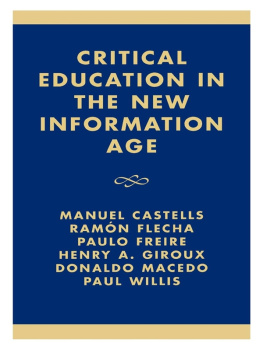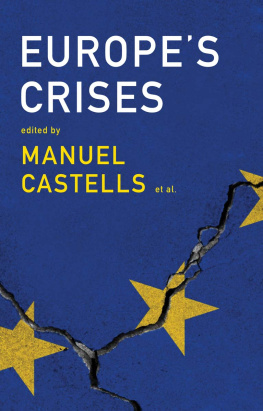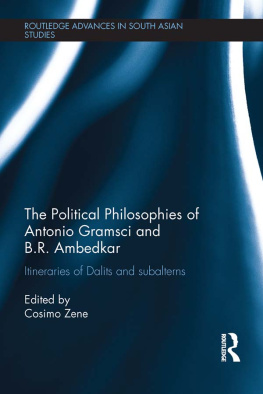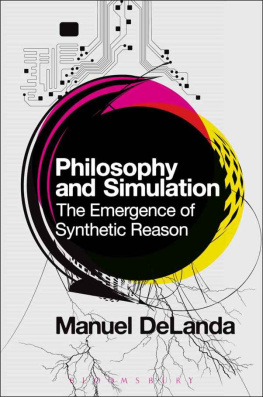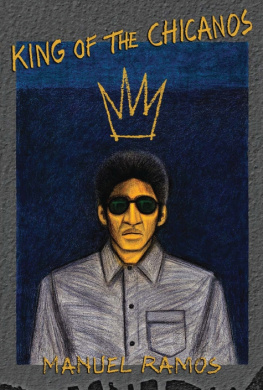The Chilean Political Process
THEMATIC STUDIES IN LATIN AMERICA
Series editor: Gilbert W. Merkx, Director, Latin American Institute, University of New Mexico
The Political Economy of Revolutionary Nicaragua
by Rose J. Spalding
Women on the U.S.-Mexico Border: Responses to Change
edited by Vicki L. Ruiz and Susan Tiano
Jewish Presence in Latin America
edited by Judith Laikin Elkin and Gilbert W. Merkx
Policymaking in Mexico: From Boom to Crisis
by Judith A. Teichman
Land, Power, and Poverty: Agrarian Transformation and Political Conflict in Central America
by Charles D. Brockett
Pinochet: the Politics of Power
by Genaro Arriagada. Translated by Nancy Morris
The Chilean Political Process
by Manuel Antonio Garreton. Translated by Sharon Kellum
Additional titles in preparation
First published 1989 by Westview Press
Published 2019 by Routledge
52 Vanderbilt Avenue, New York, NY 10017
2 Park Square, Milton Park, Abingdon, Oxon OX14 4RN
Routledge is an imprint of the Taylor & Francis Group, an informa business
Copyright 1989 by Unwin Hyman, Inc.
All rights reserved.
All rights reserved. No part of this book may be reprinted or reproduced or utilised in any form or by any electronic, mechanical, or other means, now known or hereafter invented, including photocopying and recording, or in any information storage or retrieval system, without permission in writing from the publishers.
Notice:
Product or corporate names may be trademarks or registered trademarks, and are used only for identification and explanation without intent to infringe.
Library of Congress Cataloging-in Publication Data
Garretn Merino, Manuel A. (Manuel Antonio)
[Proceso politico chileno. English]
The Chilean political process / Manuel Antonio Garretn: translated by Sharon Kellum.
p. cm. (Thematic studies in Latin America)
Translation of: El proceso politico chileno.
Includes bibliographical references and index.
1. Civil-military relationsChile.2. Military government
Chile.3. ChilePolitics and government1973I. Title.
II. Series.
JL3420.C58G3713 1989
322.50983dcl9
British Library Cataloguing in Publication Data
Garretn, Manuel Antonio
The Chilean political process. (Thematic
studies in Latin America).
1. Chile. Politics
I. TitleII. Series
376.0014
ISBN 13: 978-0-367-29076-4 (hbk)
To all those with whom we have shared these times
For my sons Antonio and Manuel
Over the years, many people and institutions have directly or indirectly facilitated the studies on which this book is based. As the author, however, I remain entirely responsible for its contents.
The chapter on the Chilean political system originated in a study supported by the Dag Hammarskjold Foundation in Uppsala, Sweden, and by the Instituto Latinoamericano de Estudios Transnacionales in Mexico City. That version was developed further during a stay at the Instituto de Investigaciones Sociales at the Universidad Nacional Autnoma de Mxico, for which I thank Director Julio Labastida.
The chapter on the era of Popular Unity (Unidad Popular) originated as part of a project entitled Ideologa y procesos sociales en la sociedad chilena, 19701973, which was cosponsored by the Ford Foundation and the Joint Committee for Latin American Studies of the Social Science Research Council. Many of the ideas developed here were discussed with the projects research group, which included Enzo Faletto, Leopoldo Benavides, Cristin Cox, Eugenia Hola, Eduardo Morales, Diego Portales, and Toms Moulin. A major portion of my contribution to the project was elaborated during my stay at St. Catherines College, Oxford, and in the seminars given at St. Anthonys College, Oxford. This experience was made possible by an invitation from Robert Pring Mill and Alan Angel, to whom I would like to give special thanks.
The chapter on authoritarian regimes in Latin America originated in a FLACSO seminar sponsored by the Consejo Latinoamericano de Ciencias Sociales (CLACSO). The chapter on national security ideology originated in a study on this theme completed jointly with Genaro Arriagada.
Key sections of the chapters on the Chilean military regime were elaborated during my participation in the Latin American Program at the Woodrow Wilson Center in Washington, D.C., and several of its projects. Important factors were the support of Abraham Lowenthal and Alex Wilde and the comments of Philippe Schmitter, Laurence Whitehead, Robert Kaufman, Alfred Stepan, Arturo Valenzuela, and especially Guillermo ODonnell. Conversations with my generous friend Claudio Orrego also left an indelible imprint on these sections.
At various times in elaborating my thoughts, I have benefited from the comments of Anibal Pinto, Jorge Graciarena, Norbert Lechner, and Toms Moulin, as well as from conversations and discussions with colleagues at academic meetings. Interchanges with assistants, students, and participants in the courses that I have given during these years have also provided welcome stimulation. In revising and ordering my manuscripts, I relied on the collaboration of Germn Bravo. I am also grateful for the assistance of the academic and administrative personnel at the institutions mentioned, especially those supporting FLACSO in Santiago, where I completed my main work during these years.
The original Spanish edition, entitled El proceso poltico chileno , contained a prologue by Alain Touraine, to whom I am very grateful for support and sponsorship through the Centre dAnalyses et dintervention Sociologiques (CADIS) of LEcole des Hautes Etudes en Sciences Sociales in Paris. That version was also sponsored by the Center for Research on Latin America and the Caribbean (CERLAC) at the University of York in Toronto, in collaboration with the Inter-American Foundation.
Note on the English Edition
The original Spanish edition was published by FLACSO in Santiago in 1983. It was translated into English by Sharon Kellum and Philip Oxhorn and was revised and updated by the author while a visiting professor at the Kellogg Institute and the Department of Sociology at the University of Notre Dame in the fall of 1987. In the English edition, of the Spanish, with new sections added to bring each of them up-to-date. The last chapter of the Spanish edition was replaced in the English edition by a new chapter. Thus while the original Spanish edition analyzed the Chilean military regime through 1982, the English edition takes the analysis up through 1987.
Recent Chilean politics, the processes that have shaped them, and their relation to Chilean society as a whole are the subjects of this book. It is not easy to study and interpret political processes during a military regime. The conditions under which my reflections have evolved are well known: destruction of the natural medium for such reflectionthe universities; the disarticulation and slow reestablishment of a precarious intellectual community that has been subjected to isolation, threats, and fear; the lack of any institutional framework guaranteeing freedom of investigation, discussion, and public expression. As Lihn observed, Happy were the times when debate was an art and not a police roundup.
In other contexts, I have shown how this general climate has affected those academic disciplines dedicated to political and social analysis, with sociology and political science in the universities being neutralized, barbarized, persecuted to the brink of disappearing, or, in some cases, pressed into the service of official truth.

